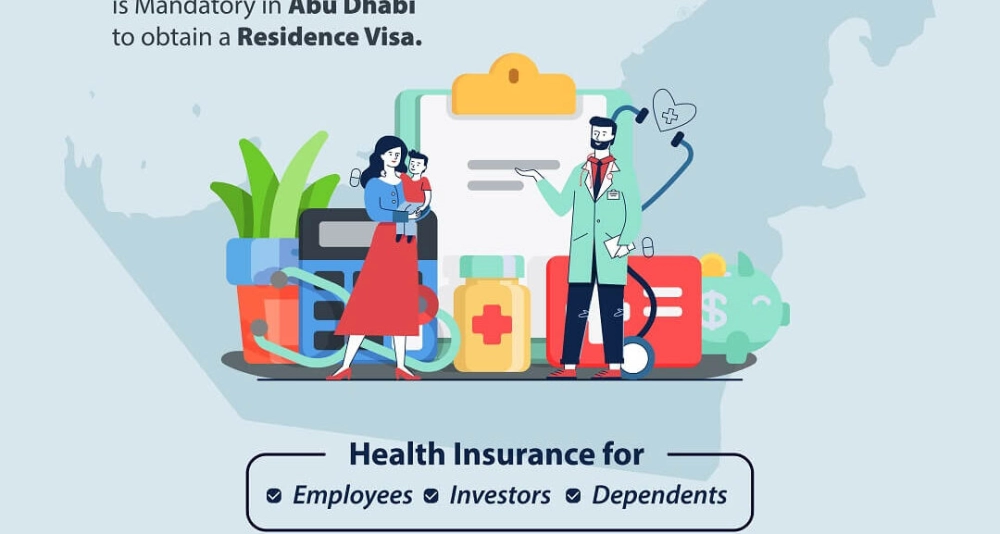Compare Car Insurance UAE to Find Your Best Policy
Before you can even start to compare car insurance UAE options, you need to get your head around the two main types of policies on offer: Third-Party Liability and Comprehensive. While one is the bare-bones legal minimum, the other provides much broader protection for your own car. Honestly, this choice is the biggest single factor that will shape your premium and what you're covered for.
Understanding Car Insurance in the UAE Market
Jumping into the UAE’s car insurance world can feel a bit overwhelming at first. But once you get a grip on a few key terms, the policies start making a lot more sense, and comparing them becomes much easier.
At its most basic level, every single car driving on UAE roads is legally required to have at least Third-Party Liability (TPL) insurance. This is the absolute minimum you need to register your vehicle. It covers the damage you might cause to someone else's car or property in an accident, but—and this is the important part—it does absolutely nothing for your own vehicle.
For that, you'll need a Comprehensive policy. This is the more popular option for most drivers because it wraps TPL coverage and protection for your own car into one package. It covers you for accidental damage, fire, and even theft.
Key Terms You Need to Know
To properly compare policies, you need to speak the language. Here are the three main terms that pop up in every car insurance discussion:
- Premium: This is simply the price you pay for the insurance policy. It's usually an annual fee, but some insurers let you pay in instalments.
- Deductible (or Excess): This is the amount you have to pay out of your own pocket when you make a claim. The insurer then covers the rest. A higher deductible can often bring your premium down.
- No-Claims Bonus (NCB): Think of this as a reward for being a safe driver. For every year you don't make a claim, you get a significant discount on your premium.
"Key Insight: Choosing between Comprehensive and TPL isn't just about the price tag. It's about risk. If you're driving an older car with a low market value, paying a high premium for Comprehensive cover might not make financial sense."
The UAE's roads are busier than ever, with the number of registered vehicles hitting around 3.9 million in 2023. That growth, combined with mandatory insurance laws, has created a seriously competitive market valued at roughly USD 1.40 billion.
Ultimately, the final price you pay comes down to you. Your age, how long you've been driving, the make and model of your car, and even its age all get factored into the calculation. For instance, insurers like New India Assurance look at all these details to work out your specific rate. This is exactly why you can't just pick a policy off the shelf; getting a personalised quote is the only way to find the best value for your situation.
How To Properly Evaluate Insurance Policies
It’s easy to get drawn in by a low premium, but that number rarely tells you the full story. To properly compare the car insurance UAE providers have on offer, you have to look past the sticker price and really get into the nitty-gritty of the policy details. This is how you find genuine value, not just a cheap deal that could leave you exposed when you need cover the most.
Your first move should be to look beyond the premium and at the deductible (sometimes called excess). This is the fixed amount you’ll pay out of your own pocket for any claim. A policy with a tempting low premium might be hiding a sky-high deductible, making smaller claims not even worth the hassle.
Next, you need to get a handle on the repair clause. Policies will usually specify either agency repair or non-agency repair. Agency repair means your car gets fixed at the official dealership using original parts - something that's pretty crucial for newer cars still under warranty. Non-agency repair, on the other hand, sends you to an insurer-approved garage. It's friendlier on the wallet but might mean non-original parts are used.
Assessing Coverage Limits and Exclusions
Every single policy has limits on how much it will pay out. A cheaper plan might come with a lower third-party property damage limit. That might seem fine, until you have an accident involving a luxury car and find yourself massively underinsured. Scrutinising these limits isn't just paperwork; it's about protecting your financial future.
Key Takeaway: At the end of the day, an insurance policy is a legal contract. It's absolutely vital you understand what you're signing. To really get a grip on what you're buying, it helps to follow some basic contract review tips for non-lawyers to spot the important details hidden in the fine print.
The policy document also spells out specific exclusions – these are the situations where the insurer simply won't pay. Common ones include damage from off-roading (unless you've paid for a specific add-on), driving under the influence, or any intentional damage. Knowing these exclusions upfront can save you a world of frustration later.
Beyond the Policy Document
Your evaluation shouldn't stop at the document, either. Think about the insurer's customer service and how efficient their claims process is. A low-cost provider might be a nightmare to get a hold of, or drag their feet when you’re stressed out and trying to make a claim. Always check out recent customer reviews and the insurer’s general market reputation to see how reliable they really are.
The wider regulatory landscape also plays a big part. Under Federal Law No. 6 of 2007, every vehicle owner in the UAE must have, at a minimum, third-party liability insurance. This law has brought a lot of stability to the market. But while it sets a baseline for protection, the quality of that cover can vary wildly, as you can see in our guide to third-party car insurance in Abu Dhabi. The UAE insurance market is always evolving, so it pays to stay informed.
Comparing Top UAE Car Insurance Providers
Now that we’ve covered the basics, it's time to roll up our sleeves and put the leading UAE insurance providers under the microscope. To truly compare car insurance UAE options effectively, you have to look past the flashy marketing and dig into the policy details, service reputation, and what you’re really getting for your money.
Let’s dive into a side-by-side look at some of the biggest names in the game: Sukoon, GIG Gulf, and Salama.
Remember, this isn't about crowning one provider as the "absolute best." The goal is to match their unique strengths to what you need. A young driver with a brand-new sports car has completely different priorities than a family with a reliable, older SUV. Getting this match right is the secret to a smart purchase.
A Closer Look At Sukoon Insurance
Sukoon, which you might remember as Oman Insurance Company, is a real heavyweight in the region. They're known for their massive network and solid, comprehensive policies. Many drivers who value a proven track record and extensive coverage tend to gravitate towards them.
A big plus is that their standard comprehensive plans often include agency repair for the first few years of a car's life, which isn't always a given elsewhere. Of course, this top-tier service can mean a slightly higher premium, especially if you have an older car or are a newer driver. Sukoon's core strength is its reliability and smooth claims process, making it a go-to for those willing to invest a little more for total peace of mind.
An Analysis Of GIG Gulf
GIG Gulf (formerly AXA) is another powerhouse, but they've carved out a niche for themselves with highly flexible policies. They start with a strong comprehensive base and then let you add on exactly what you need, whether that's enhanced personal accident cover or premium roadside assistance. This makes them a fantastic choice for drivers who want to build a policy that fits their lifestyle perfectly.
Their premiums are quite competitive, especially for drivers with a good history and a no-claims bonus. Where GIG Gulf really shines, though, is its digital experience. Getting a quote, managing your policy, and making changes online is incredibly straightforward, which is a huge draw for tech-savvy customers who value convenience.
"Expert Insight: Don't just look at the price tag. An insurer's reputation for handling claims is just as critical as the premium. A cheap policy is worthless if the company gives you the runaround when you actually need to make a claim. Always check recent customer reviews and ratings before you commit."
The image below shows just how much certain factors can swing your final premium, no matter which provider you choose.
As you can see, things like being a young driver or owning an older car can push costs up, while a clean driving record can unlock significant savings.
A Different Approach With Salama Islamic Insurance
Salama stands apart as a leading Takaful, or Islamic insurance, provider. Its entire model is built on mutual cooperation and shared risk, which really resonates with customers looking for Sharia-compliant financial products. Their policies offer the same comprehensive and third-party liability coverage you’d find with conventional insurers.
Salama often has very competitive rates, particularly for standard family cars. A key difference is how they handle surpluses—any underwriting profit is shared among the policyholders, which can lead to money back in your pocket. It’s an excellent option for anyone who values the Takaful model and is looking for solid, affordable coverage.
If you're keen on exploring all your options, you can also compare Adamjee car insurance alongside these other top names to get a complete picture of the market.
UAE Car Insurance Provider Feature Comparison
To help you see the differences more clearly, here's a quick overview of what you can generally expect from the standard comprehensive policies offered by these major providers.
| Feature | Provider A (e.g., Sukoon) | Provider B (e.g., GIG Gulf) | Provider C (e.g., Salama) |
| Best For | Drivers who prioritise reliability and premium service. | Drivers who want customisable policies and a great digital experience. | Drivers who prefer an ethical, Sharia-compliant Takaful model. |
| Typical Premium | Mid-to-High | Competitive / Mid-Range | Competitive / Low-to-Mid |
| Key Strength | Strong claims reputation and a vast service network. | Policy flexibility and user-friendly technology. | The Takaful model and potential for surplus sharing with policyholders.
|
| Oman Cover | Often included as standard in comprehensive plans. | Typically available as a standard feature or an optional add-on. | Usually available as an add-on. |
Ultimately, the right choice comes down to what you value most. Weigh the importance of cost, service level, flexibility, and the company's underlying principles to find the perfect insurer for your needs.
Choosing The Right Policy Add-Ons For Your Needs
While a standard policy provides a crucial safety net, add-ons are where you really start to tailor your protection. These are the optional extras that let you build a policy that fits your driving habits, your car, and your life—making sure you're not paying for coverage you'll never use.
Think of it this way: your comprehensive policy is the solid foundation of a house. The add-ons are the custom finishes that truly make it your own. Whether it's premium assistance for your daily commute or cover for cross-border adventures, let’s dig into the most valuable options you’ll find when you compare car insurance UAE providers have on offer.
The UAE's motor insurance scene is getting bigger and more sophisticated, with a projected value of around USD 1.77 billion by 2030. This isn't just because more cars are on the road; it's because drivers are looking for more than just the basics. They want personalised protection that matches their actual needs. You can dive deeper into this trend with this detailed research from Techsci Research.
Essential Add-Ons to Consider
- Agency Repair: This is probably the most important add-on, especially if you own a new or high-value car. It ensures that any repairs are done at the official dealership using genuine manufacturer parts. This is vital for protecting your car's warranty and its eventual resale value.
- Roadside Assistance: Most policies come with some form of basic help, but an enhanced add-on takes it to another level. We’re talking about things like unlimited towing, battery jump-starts, flat tyre changes, and even fuel delivery. It’s total peace of mind, right when you need it most.
- Personal Accident Cover: Your standard policy covers injuries to others (third parties). This add-on extends that protection to you and your passengers, offering financial compensation in case of injury or, in the worst case, death, no matter who was at fault in the accident.
- GCC Cover: If you often drive to neighbouring countries like Oman or Saudi Arabia, this one is a no-brainer. It extends your full comprehensive coverage across the border, which is worlds better than the very basic third-party cover you're forced to buy at the border crossing.
Making The Right Choice For Your Situation
The secret is matching the add-on to a real-world need. If you've just driven a brand-new car off the lot, paying for agency repair for the first three to five years is a smart move. It's a small investment to maintain its condition and protect its value down the line.
"Situational Recommendation: For someone who relies on their car for a daily commute, premium roadside assistance is invaluable. The small extra cost is nothing compared to the time and stress you'll save after just one breakdown. On the other hand, if you never drive outside the UAE, paying for GCC cover is simply throwing money away."
In the end, carefully picking your add-ons is what turns a generic policy into protection that’s truly yours. It’s a vital step that goes way beyond just deciding between a basic and a comprehensive plan. If you are leaning towards a simpler policy, it's still worth understanding all your options; you can get the full picture by checking out our guide on third-party car insurance online.
How to Actually Get the Best Insurance Quote
Finding the best insurance deal is more than just grabbing the cheapest option online. It's a process. To land the right policy for your car and your wallet, you need a smart strategy that goes beyond a simple price comparison. This means getting organised, comparing intelligently, and knowing where to find real value.
The first thing you need to do is get your documents in order. Before any insurer can give you an accurate quote, you’ll need your Emirates ID, driving licence, and your car's registration card (Mulkiya). If your car is fresh off the lot and not yet registered, you'll need the Vehicle Clearance Certificate (VCC) or Hiyaza certificate instead. Having these ready makes the whole process faster and a lot less frustrating.
Once your details are handy, you have two main options: call up insurers one by one or use an online comparison platform. Going direct can work if you have a good history with a particular company. However, if you want to properly compare car insurance UAE options, online platforms are way more efficient.
Organise Your Quotes for a Real Comparison
When the quotes start coming in, don't let your eyes jump straight to the final premium. You need to lay out the information so you can see what you’re really getting for your money. Pay close attention to these three areas:
- Deductible/Excess: This is the amount you have to cough up yourself before the insurance kicks in. A tempting low premium often comes with a painfully high deductible, which could end up costing you a lot more if you have to make a claim.
- Repair Type: Check whether the policy covers agency or non-agency (garage) repairs. For cars that are only a few years old, agency repair is something you’ll want, even if it costs a bit more. The quality of work and use of original parts is worth it.
- Coverage Limits: Look at the maximum payout for third-party property damage. In a place with so many high-end cars on the road, you want to make sure this limit is high enough to cover you in a worst-case scenario.
"Expert Tip: Never insure your car for more than it's worth today. Over-insuring is a common mistake that just inflates your premium for no reason. In a total loss, the insurer will only pay out the car's current market value, not the insured amount. Do a quick check online for your car's value and set the insured amount to match it."
Practical Ways to Lower Your Premium
Aside from picking the right policy features, there are a few things you can do to bring down the cost. The biggest one? Keep a clean driving record. A no-claims certificate is your reward for being a safe driver, and it can slash your premium significantly every year you go without an accident.
Another smart move is to tailor your policy to your actual needs. If you only ever drive around the city, do you really need expensive off-road cover or extensive GCC coverage? Be honest about your driving habits and ditch the add-ons you won’t use. This way, you’re only paying for the protection you genuinely need. Finally, don't be afraid to ask about discounts. Some banks, employers, and even loyalty programs have partnerships with insurers that could unlock some sweet, unadvertised deals.
Ready to stop guessing and start saving? At InsuranceHub.ae, we make it simple to compare plans from top providers, find the perfect coverage, and get insured in minutes. Find your ideal car insurance policy online today!







